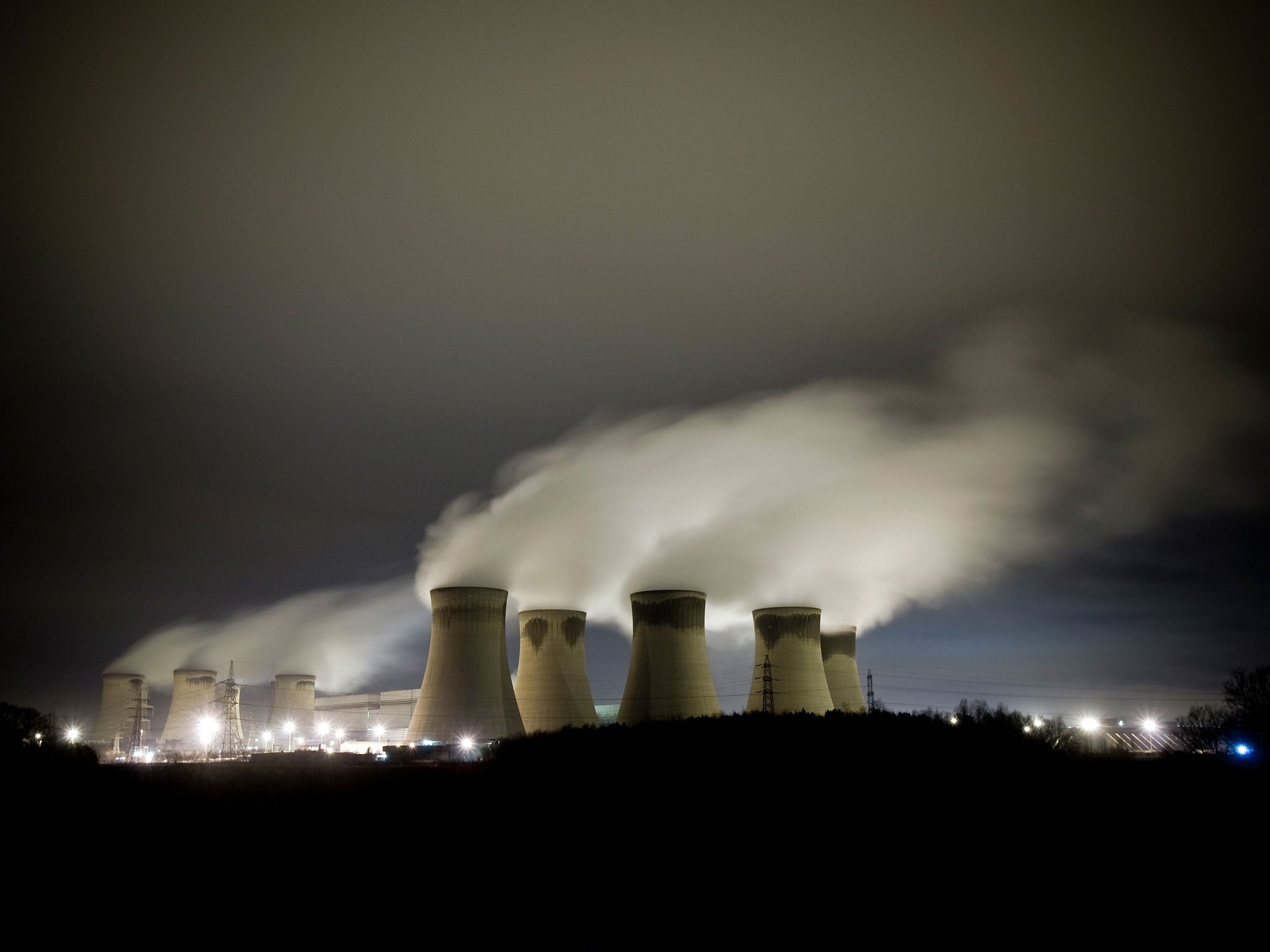All coal power stations exceeding pollution limit will close by 2025, ministers confirm
Britain saw its first day without coal power in 2017

Your support helps us to tell the story
From reproductive rights to climate change to Big Tech, The Independent is on the ground when the story is developing. Whether it's investigating the financials of Elon Musk's pro-Trump PAC or producing our latest documentary, 'The A Word', which shines a light on the American women fighting for reproductive rights, we know how important it is to parse out the facts from the messaging.
At such a critical moment in US history, we need reporters on the ground. Your donation allows us to keep sending journalists to speak to both sides of the story.
The Independent is trusted by Americans across the entire political spectrum. And unlike many other quality news outlets, we choose not to lock Americans out of our reporting and analysis with paywalls. We believe quality journalism should be available to everyone, paid for by those who can afford it.
Your support makes all the difference.All polluting coal-fired power plants will be closed by October 2025, the Government has confirmed.
Ministers said they would implement limits for the amount of carbon dioxide coal plants can emit from October 1 2025, which will mean all power stations that have not invested in technology to cut their emissions will have to cease operation.
The move implements a pledge originally made in 2015 to end "unabated", without technology to cut carbon emissions, coal generation in Great Britain by 2025
Publishing its response to a consultation on implementing the phase-out, the Government said it expected the majority of the UK's remaining coal power stations to close or invest in emission-cutting technology in the early 2020s.
Existing EU regulations, a price on carbon which makes the polluting fossil fuel more expensive as an energy source than gas, and poor economics of coal power are likely to lead to all but 1.5 gigawatts of power to shut before the 2025 deadline.
Coal has already seen its share of the energy mix decline dramatically, falling to 9% of generation in 2016 from 22% in 2015, and plummeting to a record low of 2% in the second quarter of 2017.
Such is the shift away from coal power that Britain saw its first full day in 2017 without generating any electricity from coal since the Industrial Revolution.
The Government acknowledged the move away from coal would affect a large number of jobs, mainly in Yorkshire and the Humber and South Wales.
But the consultation response said: "In 2015, the low carbon electricity sector generated over £12 billion in turnover and directly supported 47,000 jobs, with more in supply chains.
"We expect that the losses in activity associated with the closure of unabated coal generators will be compensated by increased activity in new, clean generation.
"There is a notable opportunity for the UK to become one of the most advanced economies for smart energy and related technologies."
The announcement comes after a slew of "green" records were broken in 2017.
The shift to renewables, with record moments of output for solar, wind and hydropower, meant new low levels of carbon pollution from electricity were seen in 2017.
And the cost of new offshore wind tumbled in the latest Government auctions for support for the technology.
Last year was hailed by environmental campaigners as the "greenest year ever", with 2018 expected to see an even cleaner power sector but there were calls for more Government support for low carbon electricity to reduce dependency on gas.
Hannah Martin, head of energy at Greenpeace UK, said the Government's announcement was "significant progress on making coal history in the birthplace of the industrial revolution".
She said it was important that the move was carried through and enough parliamentary time was provided to do it properly.
She added: "Coal should be replaced with clean technologies well before the 2025 deadline if we are to stay global leaders in tackling climate change."
Join our commenting forum
Join thought-provoking conversations, follow other Independent readers and see their replies
Comments